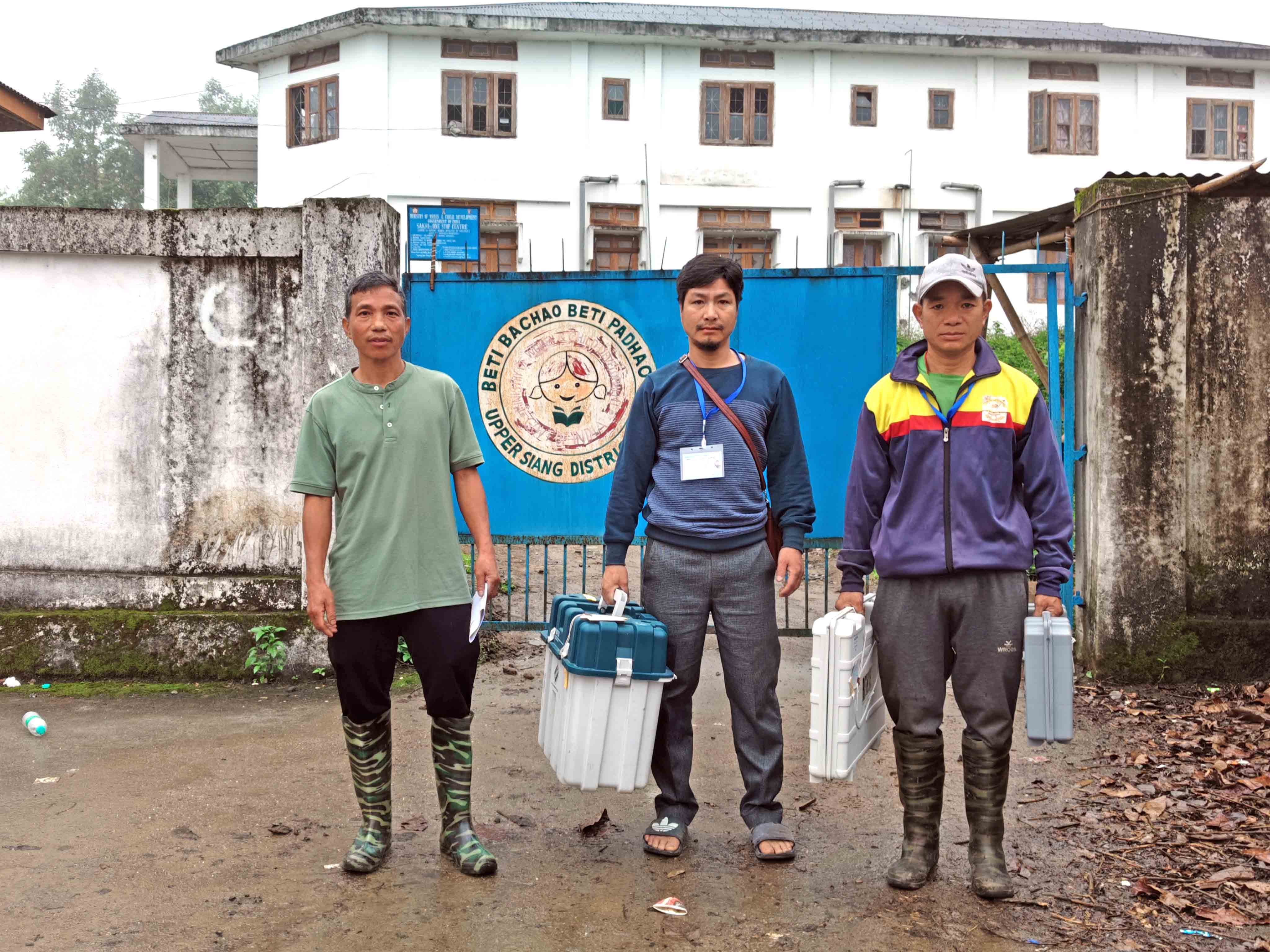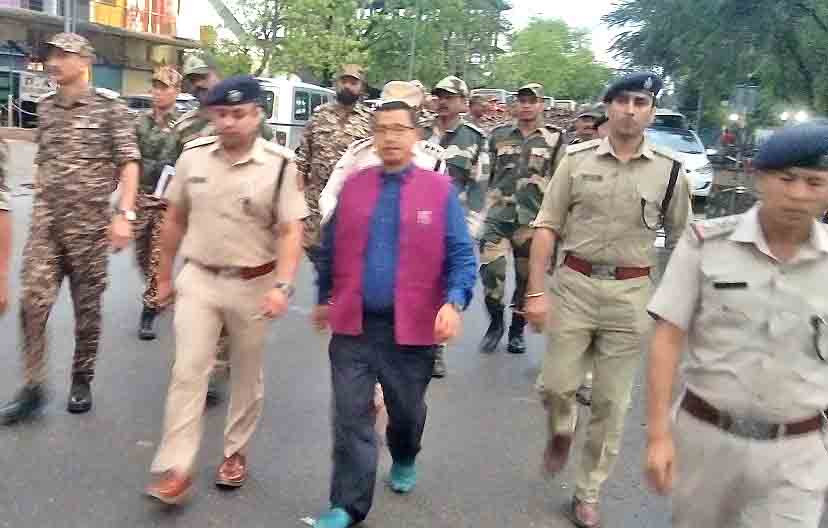-
DC Capital appeals voters to exercise adult franchise
-
 General Observer urges poll officials to work in coordination
General Observer urges poll officials to work in coordination
-
 Polling officials dispatched to three remote polling stations in Upper…
Polling officials dispatched to three remote polling stations in Upper…
-
 Security forces conduct flag march in Pasighat,144 CrPC clamped in…
Security forces conduct flag march in Pasighat,144 CrPC clamped in…
-
Polling teams for Kullung, Habia dispatched
-
Expelled BJP ZPMs seek time to explain stand
-
Security tightened to ensure free & fair elections: SP
-
Index campaign launched for Papumpare, ICR
-
General Observer takes stock of MCMC activities
-
DEO holds press briefing on Election Preparedness, SOPs
In a major relief for liquor licensees in Arunachal Pradesh, the Supreme Court on Wednesday relaxed the 500-metre cap on liquor vends across the national and state highways there.
A three-judge bench relaxed the cap while noting that almost 50 per cent of the state revenue for Arunachal Pradesh came from the sale of liquor and 916 shops out of a total of 1,011 shops have been affected by the 500-metre cap.
The decision makes sense because already Sikkim and Meghalaya are totally exempted from the 500-metre or 220-metre rule as almost 90 per cent of liquor shops would have to shut to comply with this restriction. Sharing similar terrain and of a total revenue of Rs 441.61 crore, Rs 210 crore coming from liquor sales, Arunachal deserves the parity given to Sikkim and Meghalaya.
In December 2016, the Supreme Court ruling extending its ban on bars along national and state highways have led to several unexpected consequences: bars shut in all major cities on arterial roads classified as highways, but which really are highways only outside city limits. Hotels, restaurants, clubs and standalone bars that pay huge sums for liquor licences have been badly hit. The arguments relate to safe driving, which is why the court also insisted that all display boards of liquor vends and bars be banned. This has nothing to do with the larger principle of whether the sale of liquor should be permitted. The regulations that apply selectively to location near highways puts paid to the principal aim of preventing drinking and driving, that leads to a world record number of deaths on Indian roads in proportion to the vehicle population.
Drunken driving is a global phenomenon that is tackled by governments and cities with strict police action leading to temporary driving bans and total withdrawal of diving licences for repeat offenders based on penalty points and fines. In India, however, the drive against drunken driving is non-existent or used often to collect bribes.
There is no arguing against the social principle of curbing driving under the influence of liquor. However, letting wine shops solely take the hit for growing accidents is quite unfair. As a layman, one wonders the logic of pushing wine shops away from direct view on highways to the heart of townships where people reside. What about the wine shops which are thriving near schools and educational institutions?
The Supreme Court itself might take a different view when it assesses the enormity of the problem its order may have created.

Kenter Joya Riba
(Managing Editor)She is a graduate in Science with post graduation in Sociology from University of Pune. She has been in the media industry for nearly a decade. Before turning to print business, she has been associated with radio and television.
Email: kenterjoyaz@easternsentinel.in / editoreasternsentinel@gmail.com
Phone: 0360-2212313

